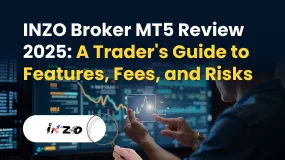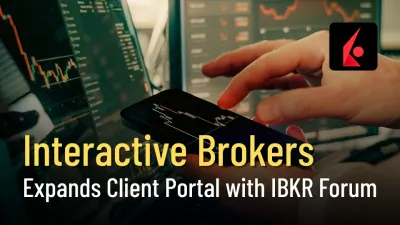简体中文
繁體中文
English
Pусский
日本語
ภาษาไทย
Tiếng Việt
Bahasa Indonesia
Español
हिन्दी
Filippiiniläinen
Français
Deutsch
Português
Türkçe
한국어
العربية
Analysis: Swiss policy pivot signals exit for big stock and bond investor
Abstract:From Silicon Valley shares to U.S. and European government bonds, securities that are already under heavy pressure stand to lose a major buyer as Switzerland ends its long-standing policy of recycling euros and dollars into foreign markets.

The Swiss National Bank recently delivered a surprise half-point interest rate hike and for the first time in years omitted references in its statement to the franc being highly valued.
The shift is a momentous one, suggesting the SNB will no longer prioritise weakening the currency by purchasing foreign exchange – a policy that enabled it to build a reserve pile of nearly $1 trillion.
Unlike most central banks, it recycled these proceeds of intervention into world markets rather than holding them at home, making it a huge stock and bond investor. In recent years it ranked among the top shareholders in the likes of Apple, Amazon and Microsoft.
Any reduction in its purchases, or an eventual move towards selling – a possibility after the bank said it is also ready to check a weakening of the franc – risks heightening volatility on already shaky markets.
“The SNBs departure from its previous approach to keep the franc weak means they will unwind their large U.S. stock holdings, particularly in FAANGS, which should increase selling pressure on these mega-cap names,” said Kaspar Hense, senior portfolio manager at Bluebay Asset Management, referring to the tech quintet of Facebook (Meta), Apple, Amazon, Netflix and Google.
The SNB had already cut back forex buying in recent weeks, as evidenced by a drop in “total sight deposits” at Swiss banks that are seen as a proxy for intervention. These deposits declined by 1.3 billion Swiss francs in the week ending June 17, versus a rise of 756 million francs a month earlier and an increase of nearly 6 billion francs in early April.
The SNB said it would seek to minimise the market impact whether it were to let existing bonds expire or actively sell assets, with the focus remaining on the overall liquidity of the portfolio.
With inflation above the SNBs target, the franc has been allowed to rise to seven-year highs against the euro, briefly pushing beyond one franc per euro in March. It has performed less well against the dollar, which has soared on expectations of aggressive policy tightening by the U.S. Federal Reserve.
FAANGs
The SNB‘s recent policy shift is not quite on a par with its shock decision in 2015 to ditch the franc’s euro exchange rate peg. But tighter policy and its potential step back from markets coincides with a deepening market selloff that has sent global stocks to a 21% loss this year.
Bond yields have also surged as inflation hits multi-decade highs, prompting steep rate hikes.
“In isolation, the impact (of potential asset sales) would have been limited but it comes in the middle of a sharp re-pricing and lower market liquidity so the effect will likely be magnified,” said ING senior rates strategist Antoine Bouvet.
It is difficult to gauge accurately the impact of any investment pullback, as the SNB does not provide a breakdown of exactly which assets it holds in each currency.
SNB data does show that a quarter of its FX reserves were in equities as of end-March.
At that time, U.S. regulatory filings show the SNBs U.S. equity portfolio was worth $177 billion, including $12.4 billion in Apple shares, $9.5 billion in Microsoft and $6.4 billion in Amazon. Other holdings included $1.5 billion in Exxon Mobil and $1.1 billion in Coca Cola.
The SNB also holds 600 billion francs in foreign government bonds, making up 64% of FX reserves, according to Reuters calculations from SNB data.
Assuming bonds make up the same share of holdings in each currency as they do across its entire FX portfolio, Reuters calculations show that might include some $248 billion of U.S. Treasuries and 221 billion euros of euro zone government debt – most of it likely to be in top-rated bonds like Germanys.
“Their activities have been quite large over the last few years, and we did see in general increased euro holdings by central banks, and the SNB is one of them,” BofA strategist Sphia Salim said. She predicted pressure on short-dated German bonds.
Unsurprisingly, last weeks policy pivot sent euro zone and U.S. bond yields surging.
If the SNB were to wind down bond holdings, it would first stop reinvesting the proceeds of maturing bonds, Lyn Graham-Taylor, senior rates strategist at Rabobank said. That could see the SNB drop nearly 5 billion euros of German government debt by year-end, he estimates.
In 2023, “you‘ll get those concerns around the SNB potentially selling bonds, merged with higher issuance next year and the potential for ECB QT,” BofA’s Salim said – a reference to expectations the European Central Bank may eventually start reducing its own balance sheet, a process known as Quantitative Tightening.

Disclaimer:
The views in this article only represent the author's personal views, and do not constitute investment advice on this platform. This platform does not guarantee the accuracy, completeness and timeliness of the information in the article, and will not be liable for any loss caused by the use of or reliance on the information in the article.
Read more

Exposing The Trading Pit: Traders Blame the Broker for Unfair Withdrawal Denials & Account Blocks
Did you receive contradictory emails from The Trading Pit, with one approving payout and another rejecting it, citing trading rule violations? Did you purchase multiple trading accounts but receive a payout on only one of them? Did The Trading Pit prop firm refund you for the remaining accounts without clear reasoning? Did you face account bans despite using limited margins and keeping investment risks to a minimum? These are some raging complaints found under The Trading Pit review. We will share some of these complaints in this article. Take a look.

M&G Review: Traders Report Fund Scams, Misleading Market Info & False Return Promises
Applying for multiple withdrawals at M&G Investments but not getting it into your bank account? Do you see the uncredited withdrawal funds out of your forex trading account on the M&G login? Does the customer support service fail to address this trading issue? Does the misleading market information provided on this forex broker’s trading platform make you lose all your invested capital? Were you lured into investing under the promise of guaranteed forex returns? These issues have become highly common for traders at M&G Investments. In this M&G review article, we have echoed investor sentiments through their complaint screenshots. Take a look!

INZO Broker MT5 Review 2025: A Trader's Guide to Features, Fees and Risks
INZO is a foreign exchange (Forex) and Contracts for Difference (CFD) brokerage company that started working in 2021. The company is registered in Saint Vincent and the Grenadines and regulated offshore. It focuses on serving clients around the world by giving them access to popular trading platforms, especially MetaTrader 5 (MT5) and cTrader. The company offers different types of trading instruments, from currency pairs to cryptocurrencies. It aims to help both new and experienced traders. Read on to know more about it.

Interactive Brokers Expands Client Portal with IBKR Forum
Interactive Brokers adds IBKR Forum to its Client Portal, giving traders a new way to share insights, join discussions, and access broker support.
WikiFX Broker
Latest News
Forex Expert Recruitment Event – Sharing Insights, Building Rewards
Admirals Cancels UAE License as Part of Global Restructuring
Moomoo Singapore Opens Investor Boutiques to Strengthen Community
OmegaPro Review: Traders Flood Comment Sections with Withdrawal Denials & Scam Complaints
An Unbiased Review of INZO Broker for Indian Traders: What You Must Know
BotBro’s “30% Return” Scheme Raises New Red Flags Amid Ongoing Fraud Allegations
The 5%ers Review: Is it a Scam or Legit? Find Out from These Trader Comments
WikiEXPO Dubai 2025 Concludes Successfully — Shaping a Transparent, Innovative Future
2 Malaysians Arrested in $1 Million Gold Scam Impersonating Singapore Officials
Is FXPesa Regulated? Real User Reviews & Regulation Check
Currency Calculator



